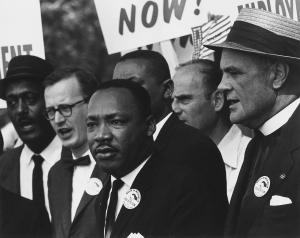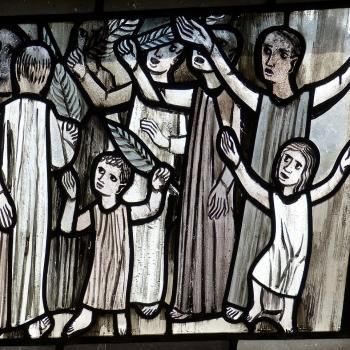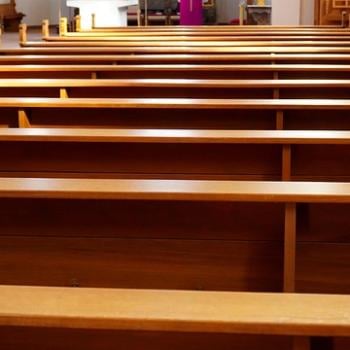This week marks the first in the celebration of Advent, a season which since about the 4th century or so has marked the beginning of the liturgical year in both the Catholic Church and many other Christian communions. The faithful are plunged into stories from both the Old and New Testaments: stories of patient waiting, of breathless anticipation of one who will come and make sense of all that seems to elude us in this world.
The theme of waiting is what perhaps more than any other unites Jews and Christians. It is a theme that similarly attracts some Muslims and even people who do not actively practice faith. I am thinking, for example, of Samuel Beckett's famous 1953 play Waiting for Godot, an allegory of humanity's frustrated waiting for God.
Why do we wait? If we take Beckett's play as a commentary on the modern-postmodern condition, then we must observe that this fundamental question admits of no easy answer. In fact, it may not be too broad a brushstroke to say that what distinguishes people of faith from hard rationalists is the willingness to suspend disbelief, to keep waiting to see how this whole human story ends. For like the ancient Greek dramas, what separates comedy from tragedy is the ending.
In my experience, though, there is great beauty in the waiting itself; and for that reason I love the season of Advent, perhaps even more than Christmas. I resist the trappings of the "retail Christmas season" (not the real Christmas season, which happens for twelve days after Christmas -- you know, like the song) because it distracts from that spiritual practice of waiting. I rather dislike the practice of gift-giving at Christmas because of the way that this practice tends to eat up so much of our energy in the weeks leading up to the holy day. We get consumed.
Now lest you think that I'm some Scrooge, I will admit that there is something absolutely delightful about seeing how much fun my two girls have on Christmas morning. We measure our lives by our holidays, and the holiday par excellence in the Western world is Christmas, replete with a vast repertoire of literature, music, art, film, and a treasure trove of popular devotions and practices. It is easy to fall under the spell of this season because of the ways it captures our imagination and even sometimes turns Scrooges into good Samaritans.
And in imagination I see a compelling point. All religious seasons and holy days are opportunities for exercising imagination, and one way of exercising imagination during Advent is with the question: what if the whole Jesus story is true? What if God really has pitched his tent among us, to free us from slavery to our pointless desires -- you know, the ones that may excite us for a while but in the end leave us tired, cynical, and hopeless?
I conceive of Advent as a season in which we can begin to question what consumes us: what desires trap us into circular thinking, or prove temporary or illusory, or lead us to make self-destructive choices, or hurt other people. Why do I need that kind of lifestyle? Job? Car? Relationship? What talents of mine lie buried beneath drains on my time that are, in the end, not very life-giving? Whom am I trying to please? Why do I spend huge chunks of my time doing that? When do I feel most free? What are my big dreams, and what am I most afraid of?
Waiting is a spiritual practice, because it provides us with the opportunity to get at the root of what we most desire -- the place in our hearts, in other words, where there lives the most authentic parts of ourselves. We discover that which, underneath the spiritual equivalent of junk food, is a holy desire. And in discovering that desire we can pray with the words of some of the oldest texts in the Bible, the psalms, which express the longing that emerges from the spiritual practice of waiting:
O God, you are my God, I watch for you from the dawn.
My soul thirsts for you, my body longs for you.
I came to your sanctuary,
as one in a parched and waterless land,
so that I could see your might and your glory.
~ Psalm 62 (from the morning prayer of the first Sunday of Advent this year)
Some of the most beautiful texts of the Bible are expressions of souls in waiting. My invitation to fellow Christians, to Jews, to Muslims, to people of other faiths, and to people of no faith at all is this: let us wait for God together. Perhaps God may surprise us all, as I believe he has done before.
For more responses on this week's question, and to read about holiday controversies from around the country, click here.
11/30/2010 5:00:00 AM





